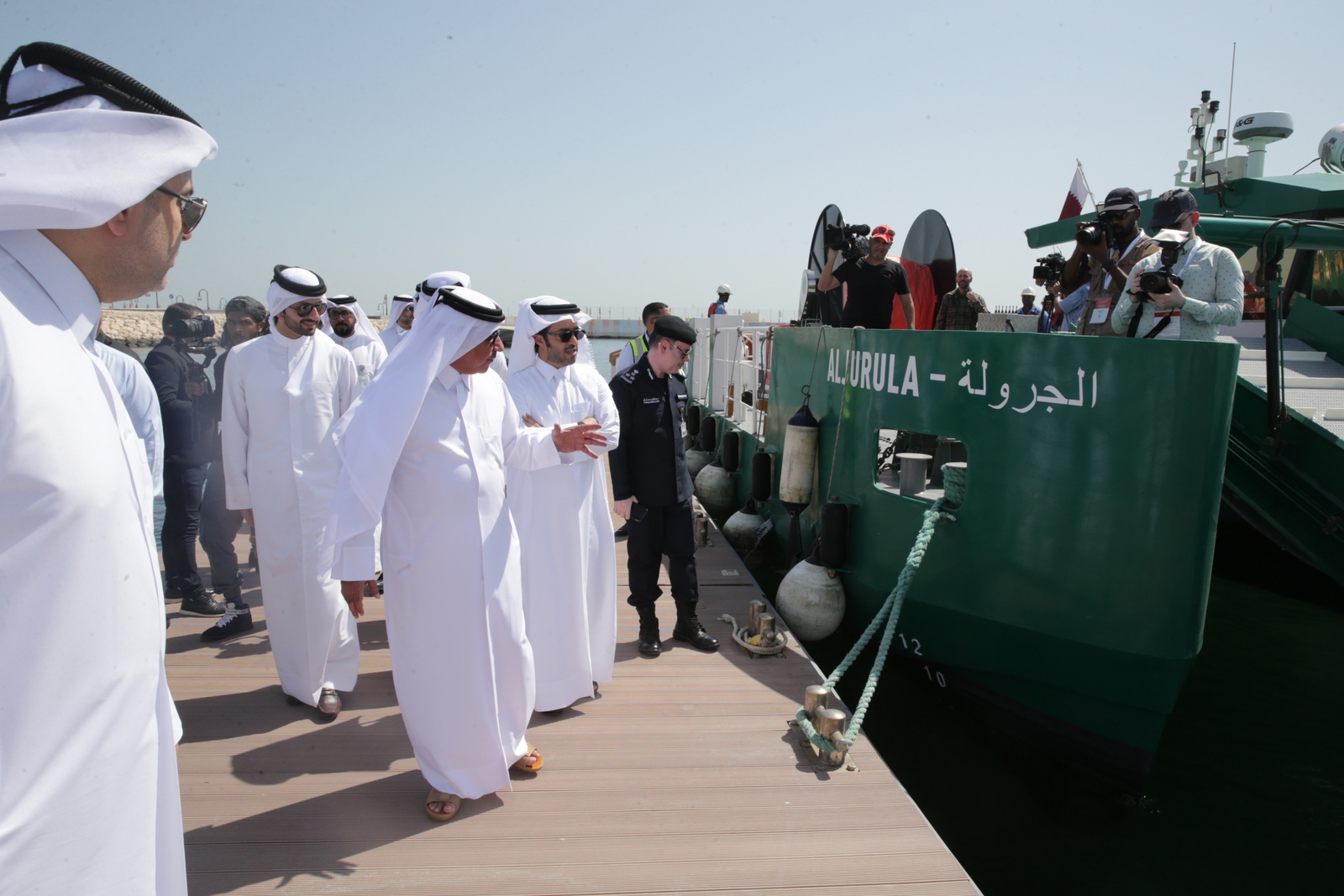Two new vessels join Mwani Qatar’s fleet to bolster eco-friendly practices and enhance navigation safety, as concerns grow over the vulnerability of critical energy infrastructure.
Qatar’s Minister of Transport, Jassim Saif Ahmed Al-Sulaiti, introduced two state-of-the-art marine vessels to Mwani Qatar’s fleet, the ministry announced in a tweet on Monday.
The event was a sideline feature of the Transport Ministry’s “Sustainable Transportation and Legacy for Generations” Conference and Exhibition, which took place on September 17-18 at the Doha Exhibition and Convention Center.
The first vessel, dubbed Aljurula, serves as a multifunctional garbage and oil spill collection vessel, with an eco-friendly design.
Measuring 12.6 meters long, the vessel is engineered to collect spilled oil and garbage with a full capacity of 25,000 litres within a 200-meter radius, boasting a one-metre draft. It will be utilised in cleaning the basins of Doha Port, Hamad Port, and Al-Ruwais Port.
The second vessel, Alsamlah, has a length of 32.7 metres and is primarily designed for the maintenance of navigational aids, such as buoys. It will also maintain commercial and tourism ports, contributing to a safer and more efficient flow of traffic in Qatari waters.
The addition of these vessels to the fleet underscores the Ministry’s commitment to safeguarding Qatar’s maritime environment and enhancing navigation safety. The move aligns with the nation’s national plan to combat oil pollution, as well as with regional and international conventions.
Researchers have recently spotlighted a “high vulnerability zone” where an oil spill could jeopardise critical infrastructure, potentially causing the complete shutdown of desalination plants and liquefied natural gas export facilities along the Qatari coast for multiple days.
The global energy market remains on a knife’s edge, with substantial volatility in the past year. Although a gas crisis was averted this season due to Europe’s milder winter, the outlook for the forthcoming winter is fraught with uncertainty.
This comes as over 20% of the world’s liquefied natural gas exports are shipped from a single Qatari port.







